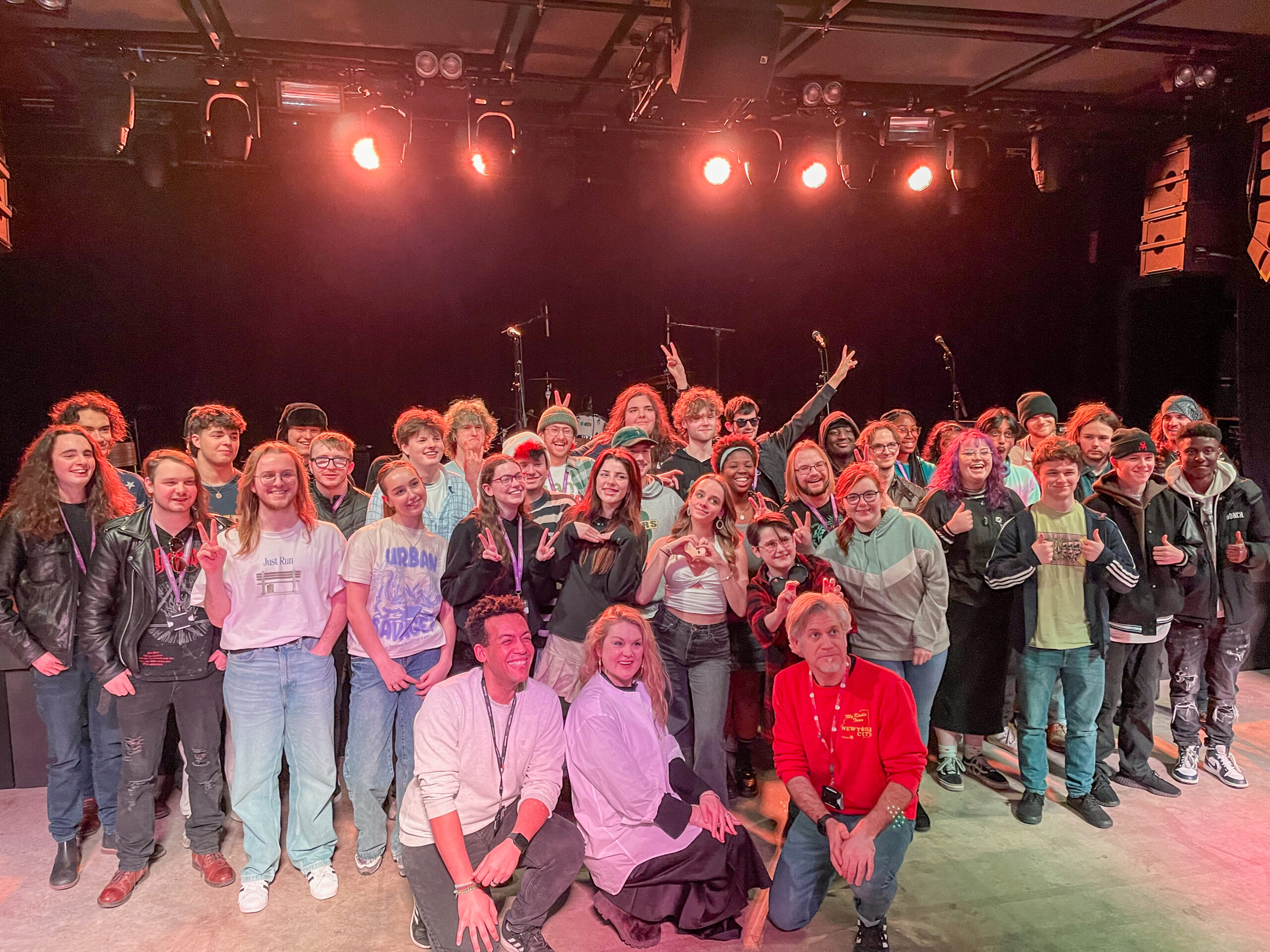Digital Audio Workstations (DAWs) are the digital canvases you will need to navigate to put down, cultivate, and develop musical ideas throughout your career. In this module, you will learn and apply different DAW techniques to create and arrange music through a series of set tasks, thereby developing a skills portfolio that you can apply throughout your course and career. You will build upon these skills to support your song writing module, generate ideas, and understand their role in a wide range of applications.
Performance Skills (40 Credit Points)
This is what it’s all about: the skill and the art of performance! This module will help develop your core instrumental and performance skills, focusing on the deployment of key areas of instrumental/vocal technique, use and application of rhythm, groove, communication and creativity.
You’ll develop as a performer by learning techniques to effectively engage, enthuse and captivate an audience. You will analyse classic and contemporary material and discover the key elements that makes it work so well.
Ultimately, you’ll employ your findings by performing sets of covers and collectively created compositions using the elements explored throughout this module.
Your Industry (20 Credit Points)
Explore contexts of working in the international world of sound and music and how you might establish a career by exploring the flow of money through the industry and relevant current and emerging trends.
You’ll assess your current skill set and discover what you need to do to improve your chances of success on your employable journey. You’ll choose work like briefs lasting at least 80 hours to enable you to experience working opportunities in a field of interest, then reflect on your learning to set you up for the rest of your course in an employable mind set. Your future starts now!
Songwriting (20 Credit Points)
Build your understanding of the theory and context of songwriting. You’ll explore classic songs from the history of popular music and, through deconstructing them, discover the component parts and common techniques used to create great material!
By embracing this process, your aural perception skills, music theory, instrument, and arrangement skills will naturally develop. You will then apply these skills to recreate classic tracks and collaborate with others to write songs based on these techniques and genre-specific elements.
Throughout the module, you will study different approaches to the craft, working both individually and collaboratively on assigned briefs. This will enable you to create a body of work that demonstrates a growing understanding of music genres through your songwriting skills.
Popular Music in Context (20 Credit Points)
Explore key events, songs and artists that helped shape the history of popular music as we know it. You’ll gain an understanding of the social and cultural contexts that have guided its development, whilst you are supported in developing your research skills to explore case studies.
Songs and artists you investigate will be analysed, and material rehearsed and performed in your song writing and performance sessions. This means you’re fully immersed in a whole host of material and styles to help you be an informed, well-rounded musician.







